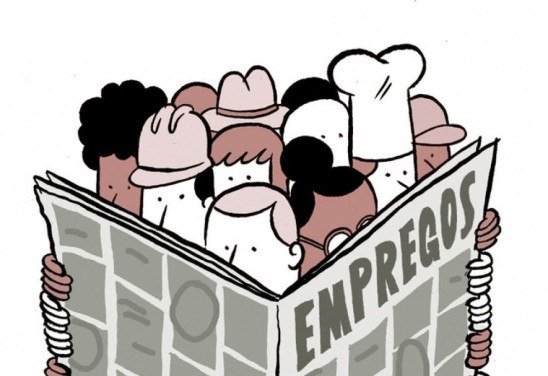The favorable global environment for commodity exporters and the double-digit interest rates in Brazil, which already outpaces recent inflation figures, have provided much support for the Brazilian real since the beginning of the year. When assessing the terms of trade, in particular, it is possible that the real has room to appreciate further in the first half of 2022, said Luciano Telo, the chief investment officer of Credit Suisse in Brazil.
Mr. Telo told Valor that the scenario may be more favorable to the dollar in the second half of the year. Among the reasons are the uncertainty brought about by the presidential elections and the monetary tightening by the U.S. Federal Reserve, which may accelerate the pace of interest rate increases.
Read the main excerpts from the interview below:
Valor: What explains the recent strong appreciation of the real?
Luciano Telo: When the real was not appreciating, we attributed this to two factors: fiscal risks and interest rates. The strong rise [of the Selic, Brazil’s benchmark interest rate] was projected, but it was confirmed over time. The real started to strengthen when interest rates went to double-digit levels because we reached the point of having positive real interest rates, and from then on it was interesting to keep the currency. A second factor was the additional commodity price shock. The scenario, which was already favorable for commodity exporters, became even stronger, especially after the conflict in Ukraine. In fact, that shock will help Brazil’s external accounts. Despite the fact that all countries lose with the war, we will have a commodity effect that favors the terms of trade.
Valor: Does the real have room to appreciate further?
Mr. Telo: If we compare the real with a basket of emerging currencies, the gap has already closed at R$4.80 to the dollar, and this has also happened with currencies of developed countries. When we look at it from another angle, of the terms of trade, we think it can appreciate further. The market has been talking about [a foreign exchange rate of] R$4.50 to the dollar. The real is surfing a more favorable short-term wave and a lot of inflows.
Valor: Wouldn’t Fed’s monetary tightening be a limiting factor for the depreciation of the dollar?
Mr. Telo: The second half of the year is a different story. At least six interest rate hikes [on the American curve] are expected, but there is a discussion about whether the Fed is going to accelerate the pace to 50 basis points and there is a great possibility that this will start in the next meeting. The second half of the year is likely to be favorable to the dollar. As for commodities, the discussion may be about how long this shock will last. We have the war issue, but this shock is likely to take a little longer. Sanctions will continue in the same way even as there is a resolution of the war, and deglobalization is expected to remain. The real has its best chance in the first half of the year.
Valor: What about the domestic scenario? What could influence the behavior of the currency?
Mr. Telo: The election will bring uncertainty. It is natural that the market wants to reduce positions, and dollar positions usually hedge the portfolio. Before the election, the domestic market may suffer if you reduce the volatility of the portfolios by having dollar positions. If one is going to set up a more defensive position, it would be closer to the third or fourth quarter, but not until the middle of the year. Historically, we start to have election discussions in March, but since we are in a favorable flow environment, it seems to me that this discussion has been postponed.
Valor: With high interest rates over the entire horizon, are foreign investors likely to be more attracted to fixed income in Brazil?
Mr. Telo: It is possible that we will draw foreign funds back into our fixed income. It would even be easier than has been the case. We are seeing investments in stocks. The flow is coming to the stock market, and we have seen an increase in foreign participation. Foreigners have brought R$91 billion to the Brazilian stock market. In the whole of last year, excluding IPOs, they brought R$70 billion.
Valor: Do you see an opportunity in the domestic fixed-income market now?
Mr. Telo: The NTN-B [National Treasury note] rate for 2035 is now around 5.6%, but it has been higher. The fixed rates are above 12%. These are levels that, if we compare them to what we expect for nominal and real interest rates in Brazil, are attractive. Since we still don’t know the extent of inflation and we have always had surprises of more inflation, we can’t see the end of the cycle. The Central Bank has signaled that it is near the end, but this also depends on the perspective that you are going to have for the price of oil and commodities. I can’t clearly see a catalyst for the fall of future interest rates, but it seems that there is plenty of premium. When it becomes clear that the adjustment of interest rates is near the end, it will be an opportunity in fixed income. We don’t increase our positions. We have a light position in NTN-Bs and a small one in fixed rate notes maturing in 2025.
Valor: There is a strong discussion in the market about the direction of inflation and our own implicit rates are at quite high levels…
Mr. Telo: The market, in fact, has increased inflation projections a lot – the long ones as well. The market is not irrational, but it has a hard time knowing how long-lasting the commodity and oil shock will be. And there are deeper medium- and long-term discussions, such as whether globalization will start to slow down. Probably the market will go a little stronger in one direction to eventually correct the excesses, but no one can have such an accurate forecast. Inflation convergence ahead would have to correct the implied inflation downward, but we are in a time of a lot of uncertainty.
Valor: How is your portfolio doing?
Mr. Telo: At the beginning of the pandemic, we had maximum stimuli in the world and we had to have an additional allocation in Brazilian and global equities well above what we would normally have in our portfolios. Last year we reduced the stock positions. Today, we have 20% in stocks in our portfolio, of which 12.5% in Brazil and 7.5% abroad. We have 15% in NTN-B notes, which we consider to be a historically neutral level, but has the potential to increase this year. The real interest rate is at high levels. We need to see the moment in which the market will be sure that it doesn’t need such a high level of premium. We still have 30% in hedge funds, 7.5% in fixed income and the remainder we put in credit and post-fixed fixed income.
Valor: You are more optimistic about the Brazilian stock market than about global equities. Why are you so optimistic?
Mr. Telo: We had a very big rally in the global stock markets, especially the S&P 500, and the Brazilian stock market had a performance of -11% last year. By valuation, it was a very different situation. Brazil’s valuation was heavily discounted in relation to any emerging peer. In practice, we are now seeing a very large flow, but it was not well distributed. It is the commodity stocks that are rising and this eventually extends to other stocks that make up the index. It is not the Brazilian stock market that depends on the domestic economy that is rising, but the stock market that receives foreign flow due to the global pro-commodities wave.
Source: Valor International
https://valorinternational.globo.com




/i.s3.glbimg.com/v1/AUTH_37554604729d4b2f9f3eb9ad8a691345/internal_photos/bs/2022/P/l/kTTfhfQ5ebWKL5RFLk8Q/31bra-100-segura-a6-img01.jpg)







